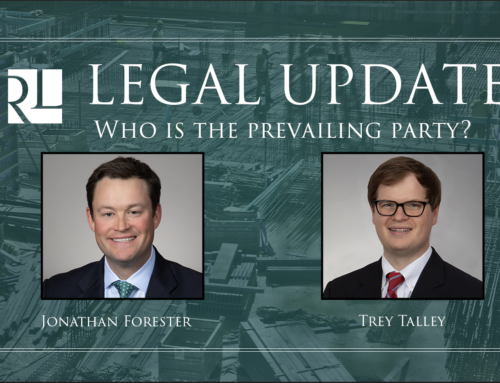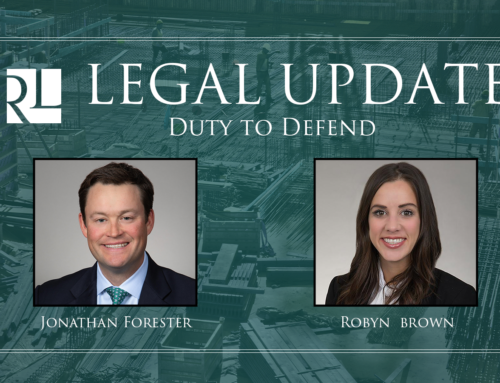The U.S. District Court for the Western District of Louisiana recently issued a ruling that clarifies the liability of a surety when a claimant gives late notice of a loss and also made clear the duty of a commercial general liability (“CGL”) carrier to indemnify its insured for an economic-loss claim. In Yor-Wic Construction Co., Inc. v. Engineering Design Technologies, Inc., No. 17-0224, 2020 WL 3964775 (July 13, 2020), Yor-Wic, a subcontractor, was denied the opportunity for a subcontract and subsequently brought a lawsuit against the surety and the general contractor.
The surety contended that the general contractor’s failure to timely notify it of Yor-Wic’s default discharged the surety’s liability under the performance bond. Only a handful of cases in Louisiana have addressed the specific issue of an obligee’s late notice and its effect on the surety’s liability, but those cases have made clear that when the bond does not make timely notice an explicit condition precedent to coverage, the surety has to demonstrate prejudice resulting from the late notice in order to defeat the claim. In the case at bar, neither the surety nor general contractor disputed that the bond did not make timely notice a condition precedent to coverage and that, consequently, the surety was required to demonstrate that it suffered actual prejudice as a result of the late notice. However, the court found that a genuine issue of material fact existed as to whether the delay prejudiced the surety’s position and the extent to which the surety could have remedied the loss had it been notified earlier. As such, the court ruled that neither party was entitled to summary judgment.
Another important aspect of this ruling is the court’s ruling on CGL coverage with respect to the duty to indemnify for economic loss. The CGL insurer for the subcontractor sought dismissal of all claims asserted against it, arguing there was no property damage alleged that would trigger coverage under the CGL policy it issued on behalf of Yor-Wic. The main issue was whether the “loss of use of tangible property,” which was explicitly stated in the contract as a means of property reiterated that under Louisiana law, the loss of possible future income or profits, or the loss of use of that income, does not constitute a loss of tangible property. The court further explained that tangible property corresponds to corporeal property, which is property that can be felt and touched. The court concluded that the loss of use of money and the delay damages relating to the untimely completion of the project did not qualify as property damage and, as such, coverage under the CGL policy was unambiguously excluded and the CGL carrier owed no duty to defend or to indemnify Yor-Wic for the alleged loss.
With this decision, the court made it clear that Louisiana law requires that (1) a surety has to demonstrate prejudice when the performance bond does not make timely notice an explicit condition precedent to coverage; and (2) claims alleging economic loss, whether due to project delays or otherwise, do not constitute an injury to or loss of tangible property within the meaning of a standard CGL policy.



